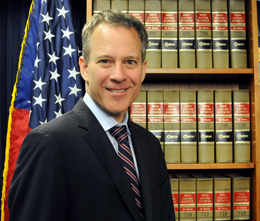 A.G. Schneiderman, Together With Federal Trade Commission, Demanded That Rite Aid Retain Additional New York Stores To Preserve Retail Pharmacy Chain Competition
A.G. Schneiderman, Together With Federal Trade Commission, Demanded That Rite Aid Retain Additional New York Stores To Preserve Retail Pharmacy Chain Competition
Walgreens Will Now Only Acquire 272 Stores In NY, Compared To Original 456 Stores
Schneiderman: New Yorkers Deserve The Lower Prices, Greater Choices, And Better Service That Result From Vigorous Competition
Attorney General Eric T. Schneiderman announced today that, following his office’s investigation into Walgreens’ proposed acquisition of thousands of Rite Aid stores in New York and across the country, Walgreens has restructured the acquisition to address concerns that it would limit retail competition in the New York area. Walgreens and Rite Aid are the second- and third-largest retail pharmacy chains in the U.S, serving huge numbers of New York consumers, as well as businesses that purchase drug coverage for their employees. Walgreens initially proposed to acquire 2,186 stores from Rite Aid, including 456 Rite Aid stores in New York State.
To resolve competitive concerns raised by Attorney General Schneiderman and the Federal Trade Commission, Walgreens agreed to acquire fewer stores in New York State and the New York City metropolitan region than it originally had planned. Walgreens will now acquire 272 stores in New York State, with Rite Aid retaining 327 stores across the state. Additionally, Walgreens will acquire 34 fewer stores in New Jersey and 13 fewer stores in Connecticut than initially proposed, allowing Rite Aid to maintain a significant footprint in the New York City metropolitan region, and preserving Rite Aid as a competitive force in the region.
“Retail pharmacy chains fill the majority of prescriptions in many areas of New York state,” Schneiderman said. “Vigorous competition between pharmacy chains keeps down the cost of filling a prescription, which benefits New York consumers and businesses by preserving choice and keeping costs low. We’ll continue to keep close tabs on consolidation in the retail pharmacy space to ensure New Yorkers get the lower prices, greater choices, and better service they deserve.”
Walgreens initially sought to acquire Rite Aid in its entirety in November 2015. A 19-month review of that transaction by the Federal Trade Commission, Schneiderman and several other states identified significant competitive issues posed by the transaction, and Walgreens and Rite Aid abandoned the merger in June 2017. Shortly thereafter, Walgreens announced that it intended to acquire 2,186 stores from Rite Aid, but, in response to the competitive concerns presented by Attorney General Schneiderman, the FTC, and other states, Walgreens will now acquire 254 fewer Rite Aid stores.
The June 2017 transaction proposed by Walgreens and Rite Aid also included an agreement granting Rite Aid the option to purchase generic drugs through an affiliate of Walgreens at a low cost for a 10-year period. After discussion with federal and state antitrust regulators, that agreement was amended to allow Rite Aid greater latitude to pursue outside business relationships over the course of the agreement.
The case is being handled by Assistant Attorney General Amy McFarlane and Special Assistant Attorney General Mary Ellen Burns of the Antitrust Bureau, under the supervision of Bureau Chief Beau Buffier and Deputy Bureau Chief Elinor R. Hoffmann. The Antitrust Bureau is part of the Division of Economic Justice, led by Executive Deputy Attorney General for Economic Justice Manisha M. Sheth.

